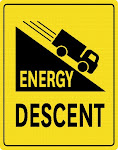There's so much to speak to today. Here's the local news: Firstly, my friend Josh, who I write about in the special bike issue of Greenwash, delivered my 'Junkie' (pictured below). He has put it together over the past several weeks using many reclaimed parts and a few new ones such as the spokes. As you can see it is absolutely beautiful with a Brookes seat that dates back to the 1940s and an Australian Rob Special frame that could be just as old. I've decided to call it Robin Hood after the red robins that appear on the original paint-work, and in honour of our 'hood, this beautiful neck of the world wide woods, and, of course, because of the carbon I wont be emitting for the profits of corporate pop-fascists – stealing from the grossly rich by generating my own renewable human generated electricity.
In other news, I've just been awarded a three-year scholarship to do a doctorate at the University of Western Sydney. I'm hanging up my tool-belt, at least for commercial building work. My research basically concerns permaculture as a modus for the arts, centring on relationships between poetics and ecology. I will be arguing that the twentieth century delivered the flawed threesome Communism, Capitalism and Fascism, none of which offered human settlements an embedded ecological framework, and as a result, humans and non-humans alike have suffered terribly. The arts have largely operated as the dutiful court jester to triumphant capitalism's anthropogenic riches. However, I will also argue that the arts have radical genes, fit and flexible enough to lead an ecological insurrection across fields. I'm going to be spending a lot of time on my bike.
And, then there's Copenhagen, the global news: What a mess. At least with Bush, Blair and Howard we knew they were evil. It helped that they were upfront about it. With Kev and Barack it's the same as before just a more ambiguous, fuzzy-feeling style of politicking, utilising 'clever' semiotics. With these latter two so-called leaders we were made to feel change is in the air, but really it's growth as usual. Where is the critique of growth-capitalism at Copenhagen? Growth, of course, is at the heart of ecological crises. When Obama was sworn in not all of us were wishful though. Regarding his 'change' and 'hope' wash, this is what
I wrote almost a year ago:
Obama will either be shot or fully bought within 12-24 months. And most likely we'll be just as disappointed as we are with Kevin07.

But to keep an eye on global politics is a rather hopeful, wasteful occupation. It generates in people a deep sense of powerlessness and futility (with some moments of apparent redemption and hilarity, as above). In the twenty-first century, our three future scenarios (David Holmgren outlines four, and I'll speak to the fourth at a later stage), are Brown Tech, Green Tech and Earth Stewardship (permaculture, and the like). At a systems level, the former two are based on just
growth and
consumption, the latter based upon biomimicry where growth and consumption are dynamically relational with
birth,
decomposition, death and rebirth (regeneration) – alltogether making up what I call the six seasons of circularity.
Permaculture together with
steady-state economics offers human settlements relocalised food, water and energy while repairing the ills of twentieth century capitalism and anthropocentric idealism. Permaculture bypasses two-party hopefulness and re-engages us with the local. Holmgren, in this book, is quite simply outstanding.

For more on this book go to
futurescenarios.org
Read more...



























